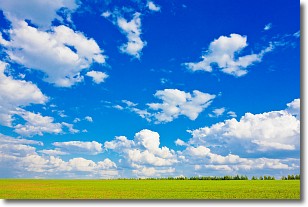Weather Alert in Oregon
Fire Weather Watch issued July 29 at 3:47AM PDT until July 31 at 11:00AM PDT by NWS Portland OR
AREAS AFFECTED: Northern Willamette National Forest; Southern Willamette National Forest
DESCRIPTION: ...FIRE WEATHER WATCH IN EFFECT FROM WEDNESDAY 11 AM PDT THROUGH THURSDAY 11 AM PDT FOR THUNDERSTORMS FOR FIRE WEATHER ZONES 689 AND 690... ...15-35% CHANCE OF THUNDERSTORMS PRODUCING LIGHTNING WEDNESDAY THROUGH THURSDAY MORNING... * AFFECTED AREA...In Oregon, Fire Weather Zone 689 Northern Willamette National Forest and Fire Weather Zone 690 Southern Willamette National Forest. * OUTFLOW WINDS...Brief and highly localized outflow wind gusts up to 35 mph possible with any shower or thunderstorm that passes by. * IMPACTS...Frequent lightning and critically dry fuels may result in numerous fire starts. Thunderstorm outflow winds may result in erratic fire spread.
INSTRUCTION: A Fire Weather Watch means that critical fire weather conditions are forecast to occur. Listen for later forecasts and possible Red Flag Warnings.
Want more detail? Get the Complete 7 Day and Night Detailed Forecast!
Current U.S. National Radar--Current
The Current National Weather Radar is shown below with a UTC Time (subtract 5 hours from UTC to get Eastern Time).

National Weather Forecast--Current
The Current National Weather Forecast and National Weather Map are shown below.

National Weather Forecast for Tomorrow
Tomorrow National Weather Forecast and Tomorrow National Weather Map are show below.

North America Water Vapor (Moisture)
This map shows recent moisture content over North America. Bright and colored areas show high moisture (ie, clouds); brown indicates very little moisture present; black indicates no moisture.

Weather Topic: What are Cumulus Clouds?
Home - Education - Cloud Types - Cumulus Clouds
 Next Topic: Drizzle
Next Topic: Drizzle
Cumulus clouds are fluffy and textured with rounded tops, and
may have flat bottoms. The border of a cumulus cloud
is clearly defined, and can have the appearance of cotton or cauliflower.
Cumulus clouds form at low altitudes (rarely above 2 km) but can grow very tall,
becoming cumulus congestus and possibly the even taller cumulonimbus clouds.
When cumulus clouds become taller, they have a greater chance of producing precipitation.
Next Topic: Drizzle
Weather Topic: What is Evaporation?
Home - Education - Precipitation - Evaporation
 Next Topic: Fog
Next Topic: Fog
Evaporation is the process which returns water from the earth
back to the atmosphere, and is another crucial process in the water cycle.
Evaporation is the transformation of liquid into gas, and it happens because
molecules are excited by the application of energy and turn into vapor.
In order for water to evaporate it has to be on the surface of a body of water.
Next Topic: Fog
Current conditions powered by WeatherAPI.com




